When you have a to-be-read list as long as mine and are a mood reader, it’s an actual achievement to read a book or graphic novel the month or year it comes out. This year, I got to quite a few 2021 releases and want to share some of my faves. Consider this a Christmas gift (or Kwanzaa, if you’re reading this between December 26 and January 1).
You’ll probably recognize some of these from our Mary Sue Book Club, but also, here are ones we missed for that month and found out about later (in order of release date):
Land of Big Numbers by Te-Ping Chen
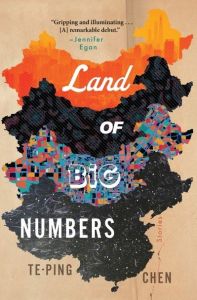
(Image: Mariner Books.)
Despite coming out in February, this was one of the most recent books I read on this list and was pulled from my TBR list out of convenience, as my partner and I got really into puzzles the last two months. (Short stories have fared better than longer audiobooks for this activity.)
Written by Wall Street Journal reporter Te-Ping Chen, this collection of short stories features fictitious characters across modern China mirroring real experiences. The mundane sounds boring to read about, but I think being indoors so often for long periods for the last (nearly) two years serves as a reminder of how both dramatic and introspective regular life can be if you have 5 minutes to sit on it.
In an NPR review, Kamil Ahsan writes about how Chen balances both specificities and makes it broad enough in many places for a few details to change the location entirely. (He uses the example of how Black political leaders are watched in America and jailed to this day.) Good writers can do this, but I think it works so well here because despite real systemic issues, many characters are more focused he everyday stuff like familial expectations, addictions, loneliness, etc.
On Juneteenth by Annette Gordon-Reed
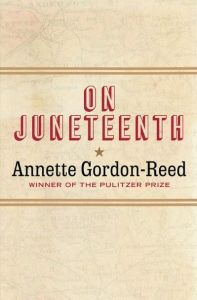
(Image: Liveright Publishing Corporation.)
I don’t remember the first time I first learned about Juneteenth, but I do remember taking a walking tour via Project Row Houses in Houston for a Museum Studies class in May 2017, learning about the historic 3rd ward and how some of the first Juneteenth celebrations took place in the district’s Emancipation Park.
That moment of realization that something positive (well, as positive as it can be) happened in a space where I was standing fueled my interest in the holiday since—especially knowing this critical part of Black history, Texas history, etc. was only a short drive away from where I grew up.
This year, I was able to relive this in a way through Annette Gordon-Reed’s book. Part memoir of her time around the Houston area, but not actually in the city, and part historical reflection, Gordon-Reed looks at how Black Texans (specifically in the southeast) shaped and have been shaped by regional politics and cultural practices. At about 152 pages, this is the shortest book on this list, but she really does make every word count.
Demystifying Disability: What to Know, What to Say, and How to Be an Ally by Emily Ladau
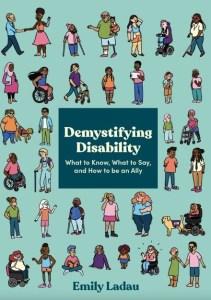
(Image: Ten Speed Press.)
I’ve rewritten this intro of how I came to this book several times. The moral of the story is that I have common but no less extreme issues with internalized ableism and needed a book as a starting point. As I began to follow those vocal in the disability community and struggled to cut out just a handful of ableist phrases and slurs, I realized that my “one thing at a time” approach 1) wasn’t going to cut it, and 2) this almost passive education was not something I would accept in terms of another “ism”/” phobia.”
In writing this, I sound so self-absorbed, but I can’t be an ally to anyone without any basic framework of understanding, and this self-help book was my first step towards that, so here I’m recommending this to you because it helped me a LOT. Ladau’s book covers some history, basic guidelines, thoughts to sit on, and personal stories from herself and others in the disability community.
The Other Black Girl by Zakiya Dalila Harris
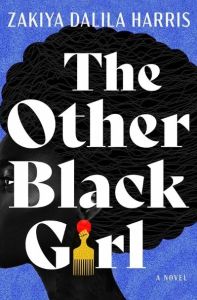
(Image: Atria Books.)
The Other Black Girl features what happens when the main character (and only women of color at work), Nella, finds herself to be, now, one of two Black women at her publishing job. While initially excited and in disbelief that she has someone that she speaks to in confidence and candidly with at work (including all the microaggressions), she begins to realize that there are forces at work in place to pit them against each other. She is both determined to prove they can work together and embattled in self-doubt as the new woman, Hazel, appears to be every kind of Blackness Nella feels like she lacks in herself.
Because of the title and cover alone, I put this on my TBR, but it stayed there for months because I didn’t know much else than what the cover told me. Then, around September, I realized that this book was featured in another book club (Smart Brown Girl) I’m in—yes, I understand this is a bad idea to be in multiple—and the guest host was none other than fellow Mary Sue writer Princess Weekes. Also, I learned that Harris’ book was a social thriller with horror elements. This made the book a top priority for me, and it paid off.
Thankfully, SBG saves the VODs, as I am at minimum 45 days late on all YouTube live events, and I was able to enjoy Harris and Weekes’ discussion on this book, its horror influences, and the controversial ending. (An end I liked, but def see why some might not like it.)
White Smoke by Tiffany D. Jackson
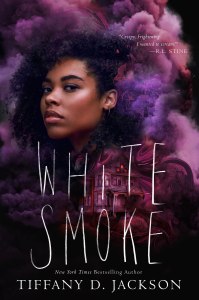
(Image: Katherine Tegen Books.)
After all the hype, it was THIS book that made me a Tiffany D. Jackson stan. White Smoke follows Marigold and her new blended family’s journey into a strange town after her mother’s new job offered them a one-year, rent-free accommodation. While Marigold’s family sees it as a fresh start away from West Coast life, she’s not vibing with this place or her somewhat bratty new little sister. The social commentary horror/thriller element comes in as she meets the townspeople and finds that the house may be haunted.
Like most of the titles on this list, experiences and interests have definitely shaped my understanding of and experience with this book. For one, this reminded me of reading the House of Dies Drear by Virginia Hamilton in Middle School, which was my peak reading years until maybe the last few years. Also, one of my favorite video essayists on YouTube, Elexus Jionde, released A Black People’s History of Halloween and Haunts just a week before I started reading this book.
While this book was released in October and features many Halloween staples, it is not a Halloween-specific book. Several elements outlined in this video, such as Devil’s Night and social issues manifesting into urban legends, are essential to Jackson’s story.
Carefree Black Girls: A Celebration of Black Women in Popular Culture by Zeba Blay
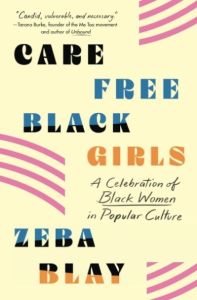
(Image: St. Martin’s Griffin.)
I went into Zeba Blay’s book with no prior knowledge of her or the hashtag she launched. I saw the title, saw I hadn’t read any non-fiction in a month, and dove straight in. The book acts to uplift and critically examine with utmost empathy (to the women) Black women in popular culture, from music to TV/film, and those under the broader umbrella of “celebrity.” The audiobook (which is how I read most of these books) felt like a series of video essays about some of my favorite long-form Black YouTube essayists.
Blay felt familiar, but a very distinct voice, and upon discovering via her personal stories in the book that she was a writer for online publications, it made sense. Besides her unique style and tone, she was also more vulnerable about mental health issues than I’ve ever read. Initially, I was very taken aback because my instinct was to do something to aid the situation (I’m not good at this), and I had to just read through it.
I understood some of it as a Black woman online, but I didn’t know in other circumstances, and I think that was okay.
Honorable Mentions
These are books that have been mentioned so many times we don’t want to be annoying about it, but still, give you are nudge judge reminder that they are totally worth your time. Here are also the related articles:
- Amari and the Night Brothers – Reflection by ya girl
- Nubia: Real One – Review by TMS Fandom Editor Briana Lawerence
- GRAVENEYE – Interview with writer Sloane Leong
(image: Mariner Books, St. Martin’s Griffin, and Katherine Tegen Books)
The Mary Sue may earn an affiliate commission on products and services purchased through links.
Want more stories like this? Become a subscriber and support the site!
—The Mary Sue has a strict comment policy that forbids, but is not limited to, personal insults toward anyone, hate speech, and trolling.—



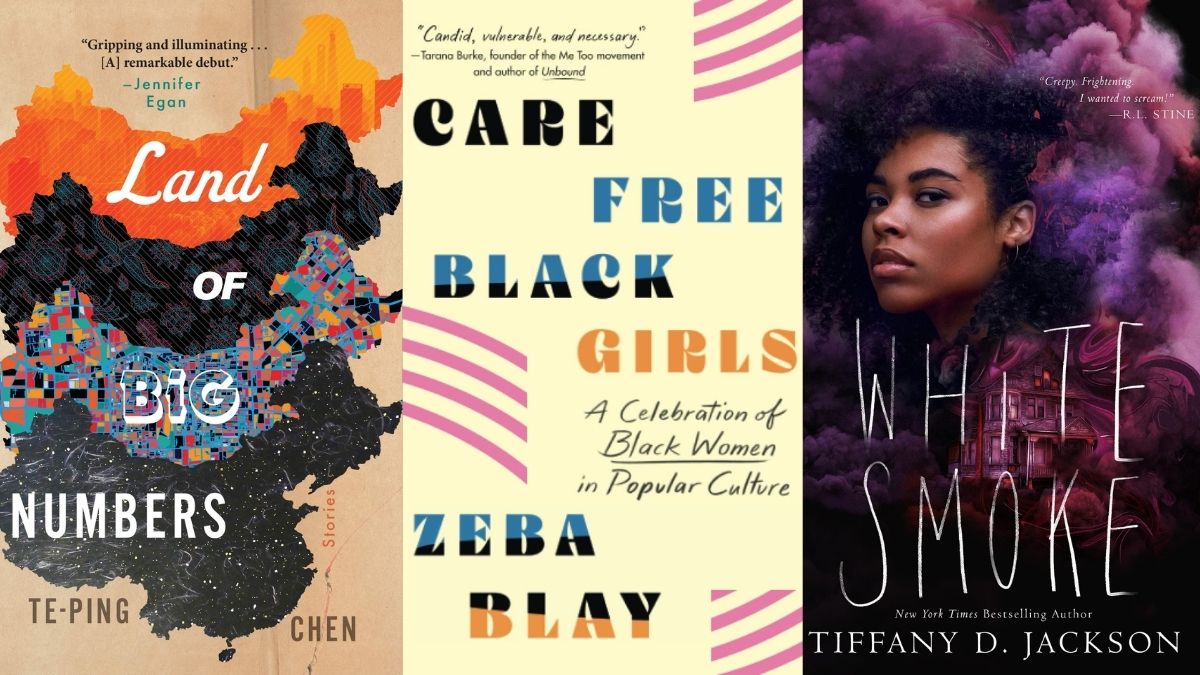






Published: Dec 30, 2021 8:00 PM UTC